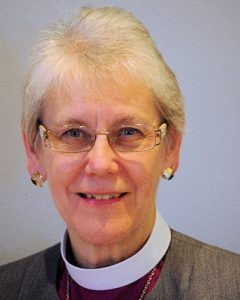
As a young Christian I was captivated by Jesus’ vision for our human community rooted in love and lived with mercy, compassion, justice and human dignity. Jesus called as his disciples a diverse bunch of people, yet he drew them into a community of apostles who would change the world after the resurrection. I saw the possibilities of the kingdom we were called to begin—its roots in the Book of Acts and its promise for a broken and hurting world that might be fully realized in the future.
Yet my experience of God’s community revealed that we could also be the place where human desires could wage battle in jealousy, rivalry, power or other manifestations of broken boundaries. The church is a living paradox with a vision of the possibilities for healthy, whole human community in relationship with God and each other that we see in Revelation 21—a place of “no more mourning or crying or pain”—alongside the capacity to harm and hurt one another deliberately and accidentally through human weakness, misunderstandings and sin.
Over the past few months, we have seen this paradox revealed as allegations of misconduct led to the resignation of Mark MacDonald and #ACCtoo raised concerns about the ways in which the church handles allegations of sexual misconduct.
We are a church that has acknowledged its broken relationship with Indigenous peoples through apologies and ongoing reconciliation work. We are excited about the emerging self-determining Sacred Circle Indigenous Church as a partner in the gospel. We care for one another across the country as part of the same Anglican family through the Council of the North. We build relationships with our ecumenical partners in the gospel to advocate for justice, peace and creation care. We love and serve those in need around us—especially those on the margins.
We are also a church where conflicts and parish divisions happen; where desires and emotions can overflow into destructive behaviour; where harassment and abuse can still occur; where human sin finds a home; and where we simply fail to live into our baptismal promises and hurt others.
It is understandable that when any of these things happen, anger boils over at the disparity between our vision and our reality. We want the church to be perfect now. We want it to be a safe haven in a broken world. When it is not, our disillusionment is painful. Some walk away from the Church at our hypocrisy. Some lash out in anger. Others acknowledge the paradoxical tension that we always live with and dig in to the hard work of transforming hearts, minds and systems to come closer to the reality we desire—the kingdom of God. Our hearts are set on the vision of a community of peace, justice and compassion while we hold space for the servant heart of Jesus able to wash the feet of those who will betray and hurt.
May our Church be humble about its weaknesses yet committed to its vision of transformation into the vision of the kingdom of God.





